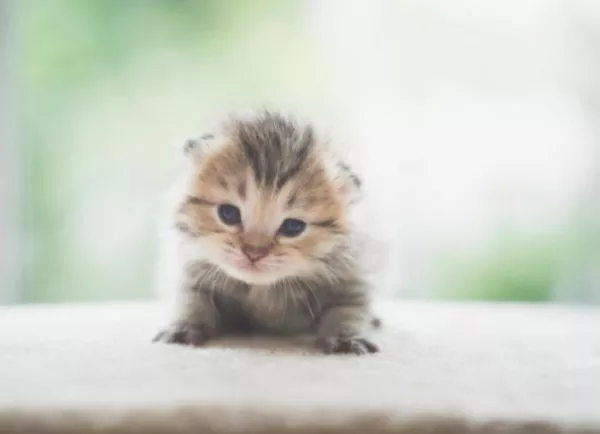Owning a Chausie cat comes with the joy of having a unique and captivating feline companion. However, ensuring your Chausie cat‘s optimal health requires careful attention to its dietary needs. In this comprehensive guide, we will delve into the intricacies of feeding your Chausie cat, providing you with valuable insights on portion sizes, nutritional requirements, and the factors that influence their dietary preferences.
Understanding the Unique Dietary Requirements of Chausie Cats
Chausie cats, known for their striking resemblance to jungle cats, have distinct dietary needs rooted in their ancestral heritage. These cats share a genetic link with the jungle cat, and this connection influences their dietary preferences. To meet the nutritional demands of your Chausie cat, it’s essential to understand their wild lineage and design a diet that mirrors their natural inclinations.
1. Tailoring the Diet to Their Wild Roots
When determining how much to feed your Chausie cat, consider their wild ancestry. Jungle cats are skilled hunters, consuming a diet rich in protein. Mimicking this in captivity means selecting high-quality cat food with a primary focus on animal-based proteins. Opt for formulations that feature real meat as the main ingredient to fulfill the Chausie cat’s carnivorous cravings.
2. The Importance of a Protein-Rich Diet
Proteins play a pivotal role in the health and well-being of Chausie cats. These feline friends require a higher protein intake compared to some other cat breeds due to their wild heritage. Protein supports muscle development, energy levels, and overall vitality. Aim for cat food with a protein content of at least 40% to ensure your Chausie cat thrives on a diet that aligns with its evolutionary needs.
3. Calculating Portion Sizes for Chausie Cats
Determining the appropriate portion size is crucial for maintaining your Chausie cat’s optimal weight and health. The ideal amount varies based on factors such as age, weight, and activity level. Consult with your veterinarian to establish a customized feeding plan that considers your Chausie cat’s individual characteristics, ensuring they receive the right balance of nutrients without overindulging.
4. Weight Management Strategies for Chausie Cats
Chausie cats are known for their agility and sleek physique. However, maintaining a healthy weight is vital to prevent potential health issues. Regular monitoring of your Chausie cat’s weight, coupled with adjustments to their diet as needed, can help you achieve and sustain an ideal body condition. Your veterinarian can guide you in implementing a weight management plan tailored to your cat’s specific needs.
5. Considering Age-Appropriate Nutrition
As with all cat breeds, the dietary requirements of Chausie cats evolve with age. Kittens, adults, and seniors have unique nutritional needs. High-quality kitten food supports the rapid growth and development of Chausie kittens, while specialized senior cat formulas cater to the changing needs of aging cats. Adapting your Chausie cat’s diet to its life stage is essential for promoting longevity and overall well-being.
6. Factoring in Activity Levels and Lifestyle
Chausie cats are known for their active and playful nature. Consider your cat’s energy expenditure when determining their daily calorie intake. If your Chausie cat is more sedentary, adjustments to portion sizes may be necessary to prevent weight gain. Conversely, an active Chausie cat may require additional calories to fuel their lively antics. Regular playtime and engagement are also crucial for mental and physical stimulation.
7. Hydration: A Key Component of Chausie Cat Health
Proper hydration is often an overlooked aspect of feline nutrition. Chausie cats, like their wild counterparts, may not have a strong instinct for drinking water. Ensure your cat has access to fresh water at all times and consider incorporating wet cat food into their diet. Wet food not only contributes to overall hydration but also adds variety to their meals, satisfying their discerning palates.
8. Addressing Dietary Sensitivities and Allergies in Chausie Cats
Chausie cats, like any other breed, can develop sensitivities or allergies to certain ingredients. Monitor your cat for signs of digestive issues, skin problems, or changes in behavior that may indicate an adverse reaction to their food. If such symptoms arise, consult with your veterinarian to identify potential dietary triggers and explore hypoallergenic or specialized cat food options.
9. The Role of Supplements in Chausie Cat Nutrition
Supplements can play a complementary role in enhancing the nutritional profile of your Chausie cat’s diet. Omega-3 fatty acids, for example, contribute to skin and coat health, while joint supplements may benefit Chausie cats as they age. Before introducing any supplements, seek guidance from your veterinarian to ensure they align with your cat’s specific needs.
Conclusion: Nourishing Your Chausie Cat for a Lifetime of Happiness
In conclusion, the key to a healthy and content Chausie cat lies in understanding and addressing their unique dietary requirements. By tailoring their diet to their wild roots, considering factors such as age and activity level, and closely monitoring their weight and overall well-being, you can provide your Chausie cat with the nutrition it needs for a vibrant and fulfilling life. Remember, a well-fed Chausie cat is a happy and thriving companion, bringing joy to your home for years to come.
Related Topics:
Exploring the Rarity of Chausie Cats
A Comprehensive Guide on Breeding Chausie Cats
Unveiling the Enigmatic Chausie Cat: Pricing, Traits, and Considerations
























